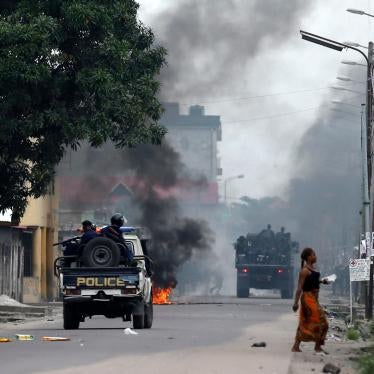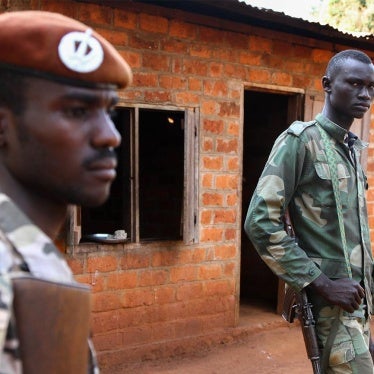(Nairobi) – Sudan’s human rights record was marred by the government’s indiscriminate aerial bombing of populated areas and the excessive use of force by security forces to suppress popular protests this year, Human Rights Watch said today in its World Report 2014.
Conflicts in Darfur, Blue Nile, and South Kordofan displaced over half a million people in 2013. During the year, Sudan’s air force engaged in indiscriminate bombing in civilian areas, in violation of international humanitarian law. Human Rights Watch documented aerial bombings in Darfur that killed dozens of civilians in February, April, and November.
“As international attention shifts to new crises elsewhere in Africa, Sudan’s indiscriminate bombs are killing civilians,” said Daniel Bekele, Africa director at Human Rights Watch. “Without much more international pressure and engagement, Sudan’s people are unlikely to get the protection and justice they deserve.”
In the 667-page world report, its 24th edition, Human Rights Watch reviews human rights practices in more than 90 countries. Syria’s widespread killings of civilians elicited horror but few steps by world leaders to stop it, Human Rights Watch said. A reinvigorated doctrine of “responsibility to protect” seems to have prevented some mass atrocities in Africa. Majorities in power in Egypt and other countries have suppressed dissent and minority rights. And Edward Snowden’s revelations about US surveillance programs reverberated around the globe.
A 38-year-old woman, a cleaner in the Golo girls’ school, in eastern Jebel Mara, told Human Rights Watch that bombs killed two girls in front of her in February: “All of us ran out of the school to see what was going on. We saw a white plane with a black bottom drop two bombs at the north corner of the school. One of the bombs fell on a group of students and killed two teenage girls.”
In Southern Kordofan and Blue Nile, where conflict erupted with rebel forces in 2011, government forces have persistently bombed and attacked civilians living in rebel-held areas. Bombing, ground attacks, and lack of food or humanitarian assistance have forced hundreds of thousands to flee, with more than 230,000 in refugee camps in South Sudan and Ethiopia as of December.
In 2013, more than 3,000 people fled to a new location in Upper Nile state, close to Malakal. Refugees told Human Rights Watch that government bombing had killed scores of civilians, including two young children, and prevented them from cultivating crops, and that dozens of people from Talodi and Abu Jebeha counties had died of starvation.
“The bombing came once a week, so there was no cultivation this year and in June we ran out of food completely,” one sheikh from the Abu Jebeha area said.
In September, security forces shot protesters in Nyala, killing seven, and days later used excessive force against demonstrations in Khartoum and other central towns, shooting live ammunition and teargas. More than 170 people were killed. Authorities also arrested hundreds, some of whom remain in detention.
Human Rights Watch and other human rights groups called on the African Commission on Human and Peoples’ Rights in November to investigate the killings and mass detention of protesters. Any investigation should include allegations of ill-treatment and torture of detainees.







